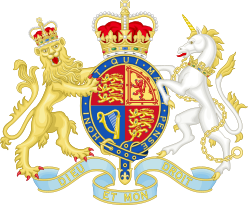 | |
| Parliament | 53rd |
|---|---|
| Party | Labour |
| Chancellor | Gordon Brown |
| Total revenue | £407 billion |
| Total expenditures | £418 billion |
| Deficit | £11 billion |
| Website | Budget 2002 |
| Numbers are projections. ‹ 20012003› | |
The 2002 United Kingdom Budget, officially known as The strength to make long-term decisions: Investing in an enterprising, fairer Britain was the formal government budget for the year 2002.
The most significant policy implemented as part of this Budget was the 1% increase in National Insurance contributions for both employees and employers, the proceeds of which went towards an increase in NHS spending.
Details
Tax Revenue
| Receipts | 2002-03 Revenues (£bn) |
|---|---|
| Business rates | 19 |
| Corporation Tax | 33 |
| Council Tax | 16 |
| Excise Duties | 38 |
| Income Tax | 118 |
| NI | 65 |
| VAT | 64 |
| Other | 55 |
| Total Government revenue | 408 |
Spending
| Department | 2002-03 Expenditure (£bn) |
|---|---|
| Debt Interest | 21 |
| Defense | 24 |
| Education | 54 |
| Health | 65 |
| Housing & Environment | 20 |
| Industry, Agriculture, Employment | 17 |
| Law & Order | 24 |
| Other | 49 |
| Personal Social Services | 15 |
| Social Security | 115 |
| Transport | 14 |
| Total Government spending | 418 |
References
- "Budget 2002" (PDF). HM Revenue and Customs. Retrieved 3 October 2017.
- "Brown unveils tax hike to fund NHS". the Guardian. 2002-04-17. Retrieved 2022-01-19.